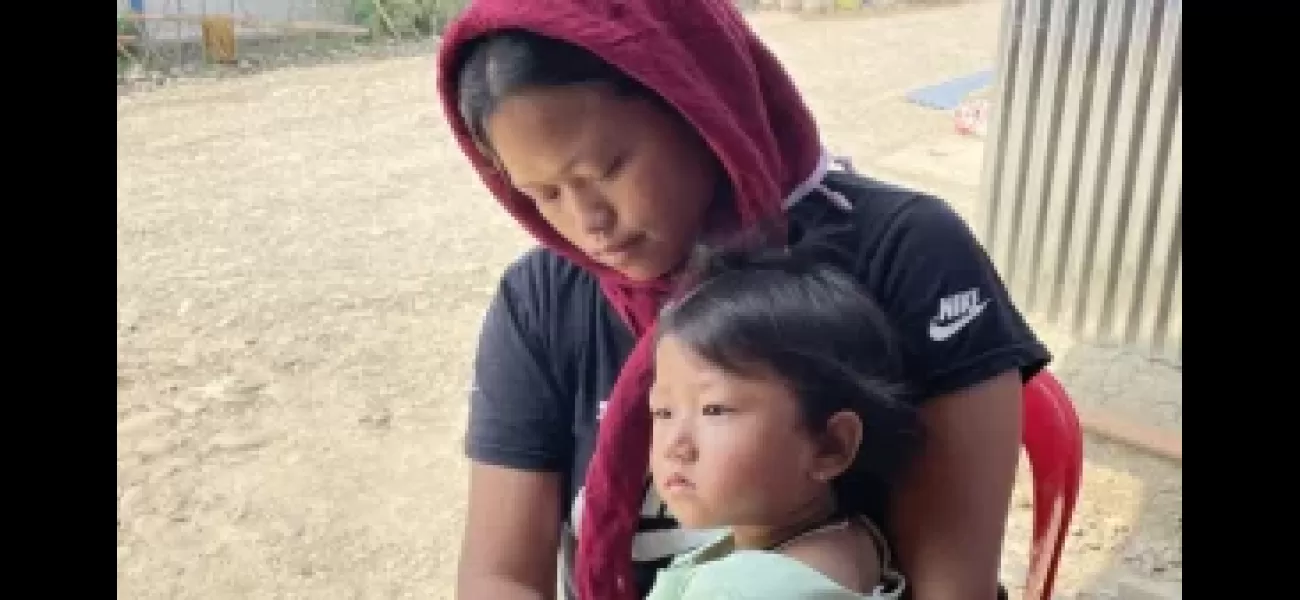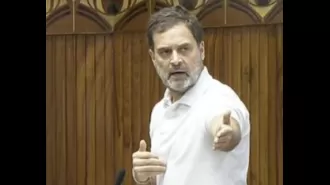In Manipur, after one year, more than 200 people have died and thousands have been displaced due to ethnic violence between Meitei and Kuki groups.
A year ago, on May 3, 2023, the state of Manipur was divided, causing families and communities to be torn apart and disrupting countless lives.
May 3rd 2024.

A year ago, the peaceful state of Manipur was thrown into turmoil as the demands for Scheduled Tribe status by the Meitei community led to clashes between them and the Kuki community. This conflict, which has resulted in over 200 deaths and displacement of many, has left a deep impact on the society, dividing families and causing a hostile segregation of the three main ethnic groups - the Meiteis, Kukis, and Nagas.
The once harmonious coexistence of these communities has been replaced by a virtual line of control, guarded by armed security personnel and village volunteers in their 20s and early 30s. These volunteers, who have taken up arms to protect their families, have caused a strict restriction on the movement of people between the valley and the hills. Even government officials and press reporters have to rely on the help of Naga or Muslim aides to pass through the numerous checkpoints.
The tensions have also affected the daily life of the people, with people from the hills having to travel to Aizawl, a 12-hour journey, for medical needs and other essential services. Students have also been affected, with college students in Churachandpur having to deposit their answer sheets in sealed envelopes and hope for them to be marked and not lost.
The Kukis, who have been displaced from the valley and now living in relief camps, also face their own struggles. Their houses have been destroyed and they have lost their livelihoods. Meanwhile, over 4,200 weapons looted during the violence remain untraceable, making it a common sight to see young men carrying weapons in the fringe areas.
As the state went to polls for the two Lok Sabha seats in April, politicians have been trying to address the issue of segregation and violence. While Congress nominee Bimol Akoijam compared the situation to a "Rwanda-like ethnic conflict" and stated that it goes against the very idea of India, BJP nominee Basanta Kumar Singh maintained that his party stands for a united Manipur and rejects any form of separation.
As the politicians continue to debate and make promises, the people of Manipur can only hope for some semblance of peace and a return to their normal lives. Until then, they must navigate through the numerous checkpoints and restrictions, relying on the help of others, while waiting for their homes and communities to heal from the deep ethnic fault lines that have been exposed.
The once harmonious coexistence of these communities has been replaced by a virtual line of control, guarded by armed security personnel and village volunteers in their 20s and early 30s. These volunteers, who have taken up arms to protect their families, have caused a strict restriction on the movement of people between the valley and the hills. Even government officials and press reporters have to rely on the help of Naga or Muslim aides to pass through the numerous checkpoints.
The tensions have also affected the daily life of the people, with people from the hills having to travel to Aizawl, a 12-hour journey, for medical needs and other essential services. Students have also been affected, with college students in Churachandpur having to deposit their answer sheets in sealed envelopes and hope for them to be marked and not lost.
The Kukis, who have been displaced from the valley and now living in relief camps, also face their own struggles. Their houses have been destroyed and they have lost their livelihoods. Meanwhile, over 4,200 weapons looted during the violence remain untraceable, making it a common sight to see young men carrying weapons in the fringe areas.
As the state went to polls for the two Lok Sabha seats in April, politicians have been trying to address the issue of segregation and violence. While Congress nominee Bimol Akoijam compared the situation to a "Rwanda-like ethnic conflict" and stated that it goes against the very idea of India, BJP nominee Basanta Kumar Singh maintained that his party stands for a united Manipur and rejects any form of separation.
As the politicians continue to debate and make promises, the people of Manipur can only hope for some semblance of peace and a return to their normal lives. Until then, they must navigate through the numerous checkpoints and restrictions, relying on the help of others, while waiting for their homes and communities to heal from the deep ethnic fault lines that have been exposed.
[This article has been trending online recently and has been generated with AI. Your feed is customized.]
[Generative AI is experimental.]
0
0
Submit Comment





